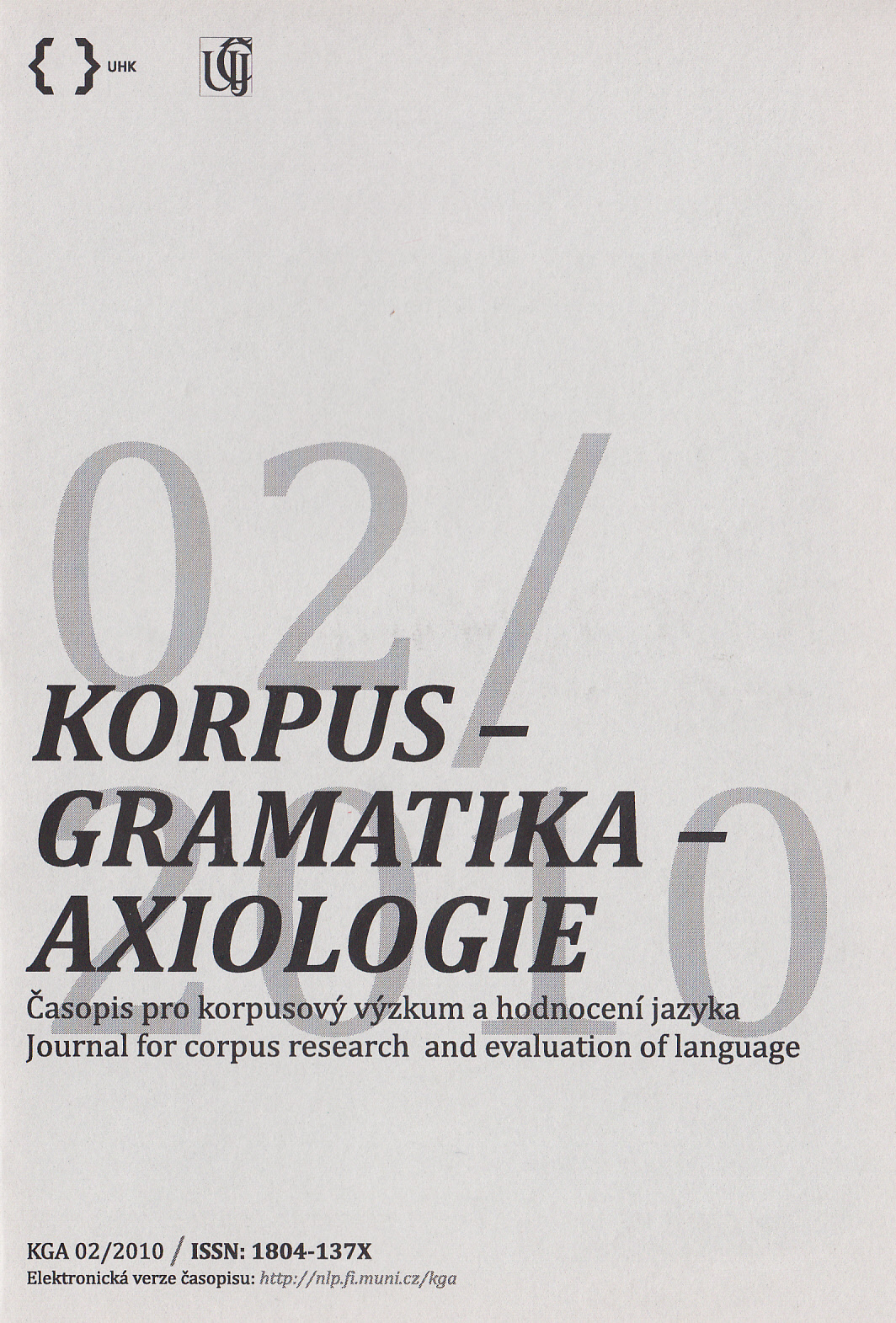Předložky v(e), na a jejich konkurence ve statických prostorově-relačních významech
The prepositions v(e), na and their variation in static spatial meanings
Author(s): Radek OcelákSubject(s): Applied Linguistics, Computational linguistics, Descriptive linguistics
Published by: AV ČR - Akademie věd České republiky - Ústav pro jazyk český
Keywords: preposition; prepositional meaning; variation; static spatial relation; localization
Summary/Abstract: The article provides a classification of the static spatial relations expressed by the prepositions v(e) and na (in most contexts translated as in and on) in contemporary Czech, based on the data of The Czech National Corpus and the internet. Both prepositions, used with a nominal phrase in the locative, may refer to several distinct relations between the determined and the determining spatial object (usually, but not necessarily, various types of localization). For each of the prepositions, these relations are classified with special attention to possible variation between the two (and some other) prepositions in describing the same situation. Such detailed analysis of prepositional meanings and variation seems useful e. g. in advanced learning of Czech as a foreign language. The description of the static spatial meanings of the prepositions is a proper basis for describing their other spatial (dynamic) as well as non-spatial (ab-stract) meanings.
Journal: Korpus - gramatika - axiologie
- Issue Year: 2010
- Issue No: 2
- Page Range: 45-56
- Page Count: 12
- Language: Czech

